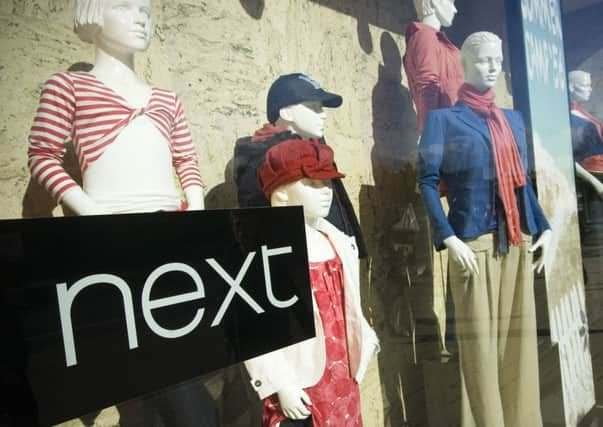Martin Flanagan: Next's problems highlight retail woes
This article contains affiliate links. We may earn a small commission on items purchased through this article, but that does not affect our editorial judgement.


However, for much of the Noughties its growth under chief executive Lord Wolfson, including overtaking Marks & Spencer in overall profitability a few years back, has been so surefooted that it has developed venerable retail bellwether status itself. Wolfson’s sector comments, particularly because he tends to eschew both rose-tinted glasses or auto-pessimism, have gained weight with the City.
• READ MORE: Next suffers first fall in profits for eight years
Advertisement
Hide AdAdvertisement
Hide AdConsequently, there are doubts around the mid-fashion – as opposed to insulated luxury clothing – sector. Wolfson says his slice of the market faces pressures from rising inflation compounding slowing real wage growth for middle Britain, and that Next’s targeted demographic is generally spending less on clothes anyway.
As we move through 2017, Next and its rivals face rising input costs from their foreign suppliers following the post-Brexit vote slump in the value of the pound. These retailers are in the classic dilemma of whether to pass this cost pressure on to customers and risk an added impact on sales, or to take the hit squarely on the profit margin body.
To wit: they are between the devil and the deep blue sea. Wolfson, a Brexiteer, may also be privately scared that his telecoms retailer peer Charles Dunstone is right to question whether Britain’s consumer resilience since the Brexit vote will be sustained amid a slowing economy this year and the start of labyrinthine and potentially unsatisfactory EU exit negotiations.
If the British consumer catches a cold, it is possible many retailers less financially robust than Next will get pneumonia.
Banking game up for Co-op?
Co-op Bank, which is in the shop window after a torrid few years as a mutual that contracted hubris, reckons it is a valuable business for a buyer with deeper pockets. But there are doubters.
Yesterday, challenger bank Secure Trust, which has the capital and appetite for deals, ruled itself out of a move on the bank. I think it is much more likely the branches will be subsumed into another bank (Santander?) or Co-op Bank gives up the ghost entirely.